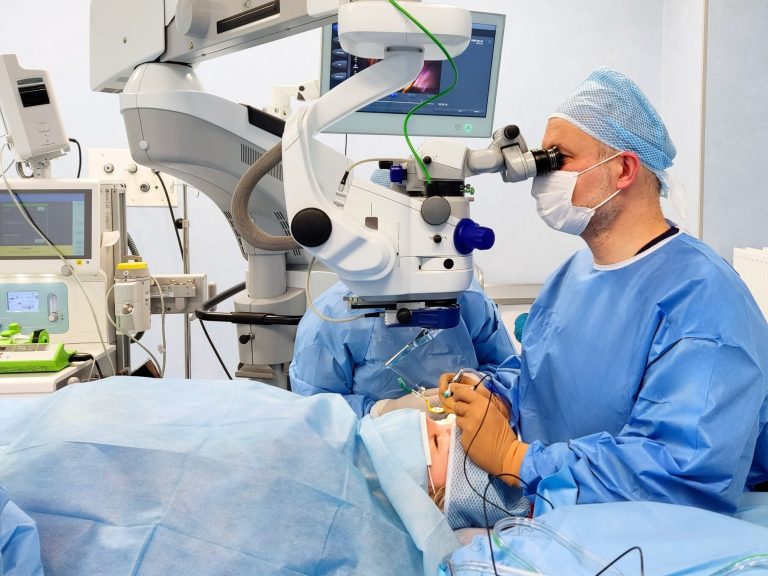World Parkinson's Day. What are the hopes of patients and doctors?

Every year, almost 8,000 people suffer from this disease in Poland. people, and currently over 90,000 are suffering. people. Men are slightly more likely to suffer from the disease, especially after the age of 60. Unfortunately, this disease is more and more often diagnosed in younger people – after 40 or even 30 years of age. However, the incidence and risk of the disease increases with age. But the reason for the rapidly increasing incidence of disease from year to year is not only the aging of societies, but also environmental pollution and the widespread use of pesticides in agriculture. We're talking about Parkinson's disease.
On April 11, we celebrate the world day of people suffering from this disease. What is worth knowing about it? What are the first symptoms that should alarm you and prompt you to see a doctor? Can you maintain a good quality of life with Parkinson's disease? What about the long-awaited program of comprehensive coordinated care for patients with Parkinson's disease?
Parkinson's disease is a neurodegenerative disease caused by, among others, death of nerve cells in the substantia nigra of the brain, responsible for the production of dopamine. Dopamine is a neurotransmitter whose action in the human brain determines the proper functioning of muscles, posture and movement. In Parkinson's disease, the concentration of dopamine in the brain decreases. This results in the appearance of symptoms such as slow movement, muscle stiffness, impoverished facial expressions, and hand tremors. As Parkinson's disease develops and over time, additional symptoms appear: balance disorders, a characteristic, forward-leaning silhouette, and difficulties in performing everyday activities such as washing, eating, and dressing. Help and care from other people becomes necessary.
Progressive character
Parkinson's disease is progressive. As it develops, the changes in the brain intensify and the symptoms deepen. The course of the disease can be divided into four periods:
-
Pre-clinical period, before the onset of typical motor symptoms such as slowness, muscle stiffness or tremor. The vast majority of patients experience symptoms that precede movement disorders. These include: impaired sense of smell, sudden movements of limbs and screaming during sleep, and low mood.
-
The early period when motor symptoms are still mild. This is the period in which patients respond best to pharmacological treatment.
-
Intermediate period, during which motor symptoms intensify and cognitive functions become impaired. Additionally, there are: balance disorders, a characteristic, forward-leaning silhouette, and difficulties in performing everyday activities, such as washing, eating and dressing. Help from other people is becoming increasingly necessary.
-
Late (advanced) period, in which the patient requires constant, 24-hour care from other people. It is estimated that in Poland approximately 20% of patients with Parkinson's disease are in this stage of the disease.
Good quality of life despite the disease
Although Parkinson's disease does not significantly shorten life expectancy, it significantly affects its quality. To maintain a good quality of life, it is extremely important to start effective symptomatic treatment at an early stage of the disease, which allows you to control the symptoms of the disease for many years. Thanks to this, the sick person can be professionally active and continue most of their activities.
At the beginning of treatment, patients usually observe a beneficial effect of the drugs throughout the day. However, in the advanced form of the disease, they function for a shorter period of time. Symptoms of the disease, such as tremors, slowness of movement or problems with walking, may appear before the patient takes the next dose of the drug. In advanced Parkinson's disease, patients may also experience involuntary movements of the head, arms and trunk, the so-called dyskinesia, which is often very troublesome. To shorten the periods during which medications do not work and reduce the severity of your dyskinesia, your doctor may change the dose of your medications and the times at which they are given. In the pharmacotherapy of Parkinson's disease, the following are used:
-
levodopa, which passes from the blood to the brain, where it is converted into dopamine;
-
drugs that slow down the breakdown of dopamine;
-
drugs that directly act on dopamine receptors (so-called dopamine agonists).
“When pharmacological treatment becomes insufficient, patients may be offered surgical treatment. The recommended neurosurgical method is deep brain stimulation (DBS), which involves implanting electrodes in specific areas of the brain. Together with continued pharmacotherapy, this therapy improves the daily functioning of the patient. In advanced forms of Parkinson's disease, infusion treatment with enteral levodopa infusions or subcutaneous apomorphine infusions is also used.” – explains Ph.D. n. med. Sławomir Budrewicz, prof. UMW from the Department and Clinic of Neurology of the Medical University of Wrocław, president of the Section of Extrapyramidal Disorders of the Polish Neurological Society.
“Procedure DBS is an expensive procedure that can only bring improvement if the patient is properly qualified. It must be remembered that the implantation of electrodes is not everything, the stimulator must be properly programmed and the patient's condition must be monitored on a long-term basis. It is necessary to organize the principles of this treatment so as not to spend money unnecessarily and so that patients benefit from it as much as possible. Moreover, as patients, we would like to have access, as part of drug programs, to what is already available in other EU countries in the treatment of advanced Parkinson's disease: a new infusion method with subcutaneous administration of levodopa or a modern pump for administering apomorphine. Especially since these methods are intended for a very narrow group of patients: only several hundred people in Poland” – Wojciech Machajekvice president of the Brain Disease Foundation.
Necessary changes in patient care
According to the Polish Neurological Society, in Poland access to basic pharmacotherapy for Parkinson's disease is good and does not differ from European and global standards. The situation with access to neurologists, early diagnostics and rehabilitation is much worse. The organization of patient care requires major changes. “In the treatment of Parkinson's disease, the cooperation of many specialists is necessary, including: neurologist, psychiatrist, psychologist, speech therapist, dietician, urologist, rehabilitator.
Therefore, care should be coordinated in selected reference centers and include all elements of therapy – pharmacological treatment, surgical treatment and specialized rehabilitation. A coordinated specialist care program (KOS) would be the best form of treatment for patients with Parkinson's disease from a pharmacoeconomic perspective. Such integrated care would also be beneficial for patients who currently seek specialized care in the health system. However, a coherent system of networks of centers would offer clear paths for the patient, adapted to different stages of the disease and changing treatment methods during its duration.” – says prof. Sławomir Budrewicz.
The first pilot project of coordinated care for a patient with Parkinson's disease was prepared by the Polish Neurological Society in 2018. At the beginning of 2023, the Ministry of Health commissioned the Agency for Health Technology Assessment and Tarification to develop such a program along with the valuation of the service. The work, in which neurological experts and representatives of the patient community also participated, was carried out at record speed and was completed in May 2023. The pilot was supposed to start in autumn 2023, but – for incomprehensible reasons – this did not happen.
“I regret to say that our efforts have not been effective yet. The program is ready, prepared down to the smallest detail. To implement it, it is only necessary to issue a few regulations. As a community of neurologists dealing with patients with Parkinson's disease, we very much hope that this will happen in the near future. Our patients should not have to wait any longer” – underlines prof. Sławomir Budrewicz.
“For several years now, we have been trying to make neurology a strategic field in Poland. We want to be able to effectively face the challenges posed by demographic changes and an aging society on the one hand, and better detection and new treatment methods offered by modern medicine the other. The number of patients with neurological diseases, such as Parkinson's disease, is increasing, and many of them are at an age when they still want to work, fulfill various social roles and enjoy life. We hope that our appeals for neurology to be supported systemically, which will help us take care of the sick more effectively, will be heard by the Ministry of Health, the National Health Fund and AOTMiT – we always declare our willingness to dialogue, we provide our expertise and concepts regarding the changes necessary for this area. – says prof. Ph.D. n. med. Konrad Rejdakpresident of the Polish Neurological Society.
About World Parkinson's Disease Day
269 years ago, on April 11, James Parkinson was born in London – an English surgeon, pharmacist and paleontologist who was the first to describe the symptoms of the disease, later called Parkinson's disease. Since 1997, we have celebrated this day as World Parkinson's Disease Day. Its aim is to increase public awareness of this disease and to show support for sick people and their loved ones.
The symbol of Parkinson's disease is a red tulip – a special variety of this flower with white elements, bred by a Dutchman suffering from Parkinson's disease. It is also a symbol of hope – to improve the quality of life of sick people and their loved ones and to quickly find an effective drug that stops the development of this disease.
Non-pharmacological management of Parkinson's disease
In addition to pharmacotherapy and DBS, specialized rehabilitation is also very important to maintain fitness in people with Parkinson's disease. Specialists also recommend a diet rich in antioxidants and vitamins. The patient should be physically active and exercise regularly, and the recommended forms of exercise include Nordic walking, tai-chi and dancing.






